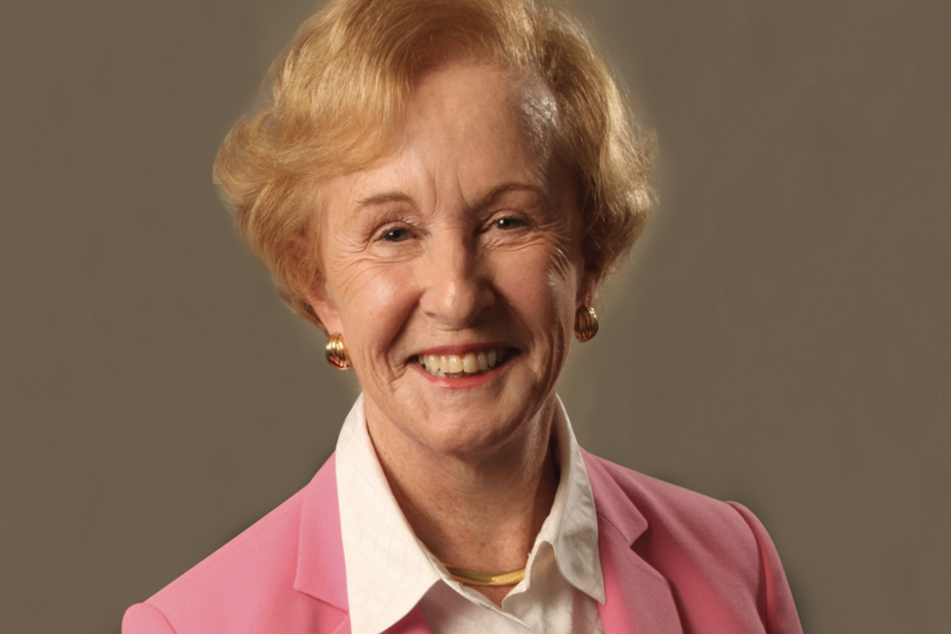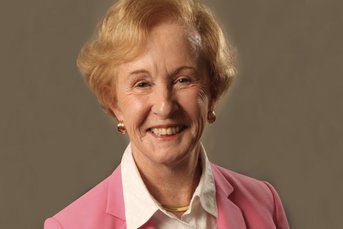Her Voice Matters: 40 years of wisdom

Armstrong Fleming Moore’s iconic founder offers women planners the wisdom of her 40 years
I want to emphasize why I think financial planning is such a great profession for women and well-suited to our tastes and talents.
You use your mind, you help people attain their dreams, you are financially rewarded, the hours are flexible and you can be your own boss.
Over more than 40 years in the business, the biggest change I have seen is the evolution from commission to fee and from being linked to a broker-dealer versus being an RIA on your own. We are still linked to a broker-dealer (Commonwealth) because they help us run our business, so they are our business partners.
Here are some of the life lessons I have learned over the years that have worked for me. Although written for women, I think most would apply to anyone seeking success in our field.
Working with clients
First, when it comes to client relations, ask questions, listen to the answers, and don’t do all the talking. When you are speaking with clients don’t try to impress them with how much you know or use complicated financial terms. Help them to understand what you are recommending and why.
Be selective when establishing new client relationships. If they don’t seem like a good fit, don’t take them on or you will regret it later. And if clients are verbally abusive to staff but are nice to you, fire them. Life is too short.
Other tips are: Never go into a meeting unprepared; if you make a mistake, admit it, fix it and then move on; and always reply to a client inquiry within 24 hours.
Also, if you don’t know the answer to a question, don’t fake it. Tell whomever it is that you will find out the answer, get back to them in a timely fashion, and then do so.
Finally, insist on participation of both spouses even if one resists. A major reason widows give for leaving their husband’s financial adviser is that they weren’t included in the decision-making process.
Marketing your firm
Advisers can’t be all things to all people. Pick a niche that works for you. I was interested in helping women take control of their financial futures — specifically widows, since my mother was a widow at a young age and I had several widow clients. They need advice, are motivated to take action and are appreciative; in short, they are the perfect client.
Pick one or two local organizations and become active in them (Kiwanis, Chamber of Commerce, etc.). If you pick a charity, pick one that is important to you. Volunteer for one committee and do what you say you will do. Don’t join just to get clients. They may come but you have to prove yourself first.
Taking care of you
If you aren’t a Certified Financial Planner, become one. It is THE credential for our industry.
Always keep learning, read professional journals and books, attend local and national conferences. The field is continually changing and you need to keep up.
If you have to give a speech, however short, stick to the given time table, prepare and rehearse ahead of time. Speaking off the cuff rarely works and detracts from your image.
Be active in your Financial Planning Association local chapter. Join a study group, either local or national. Our profession is still a young one, and by helping each other grow, we help the whole profession grow.
Exercise regularly, eat a healthy diet, get enough sleep, limit alcoholic intake. You need your energy to keep up with the job.
Dress professionally, no plunging necklines, tight or too short skirts Your clients can wear what they like, but you need to look like someone who can handle their money, not a cocktail server.
Wear bright colors instead of all neutrals (black, beige). It puts you in a positive mood and your clients as well.
Delegate, you can’t do it all. Define your strengths and find people with complementary skills whom you genuinely like and respect.
Here are a few more tips: If you wear glasses, consider having more than one pair. (I have eight.)
Don’t get involved in office politics, life is too short.
Be honest, never lie.
Be modest, give credit to others for work they do.
At the end of the day make a list of “to-dos” for the next day and rank them in order of importance: A, B and C.
Find at least one mentor (either male or female) who is willing to give you honest, objective advice.
Don’t take yourself too seriously; be able to laugh at yourself!
Finally, give credit where credit is due. Reward those who work for you — both verbally, by thanking them often, and monetarily.
Alexandra Armstrong is founder and chairman emeritus of Armstrong Fleming & Moore.
Learn more about reprints and licensing for this article.




